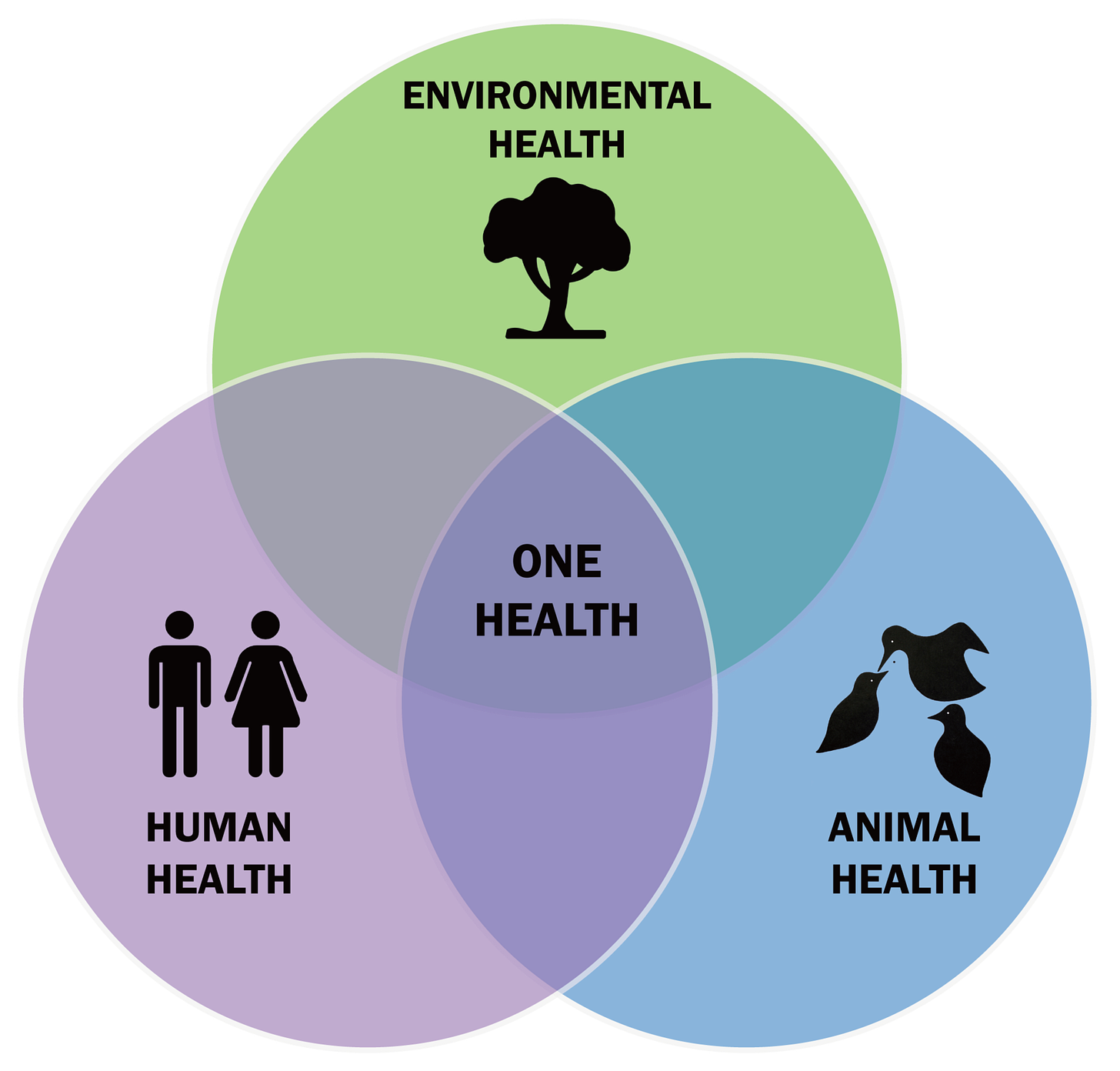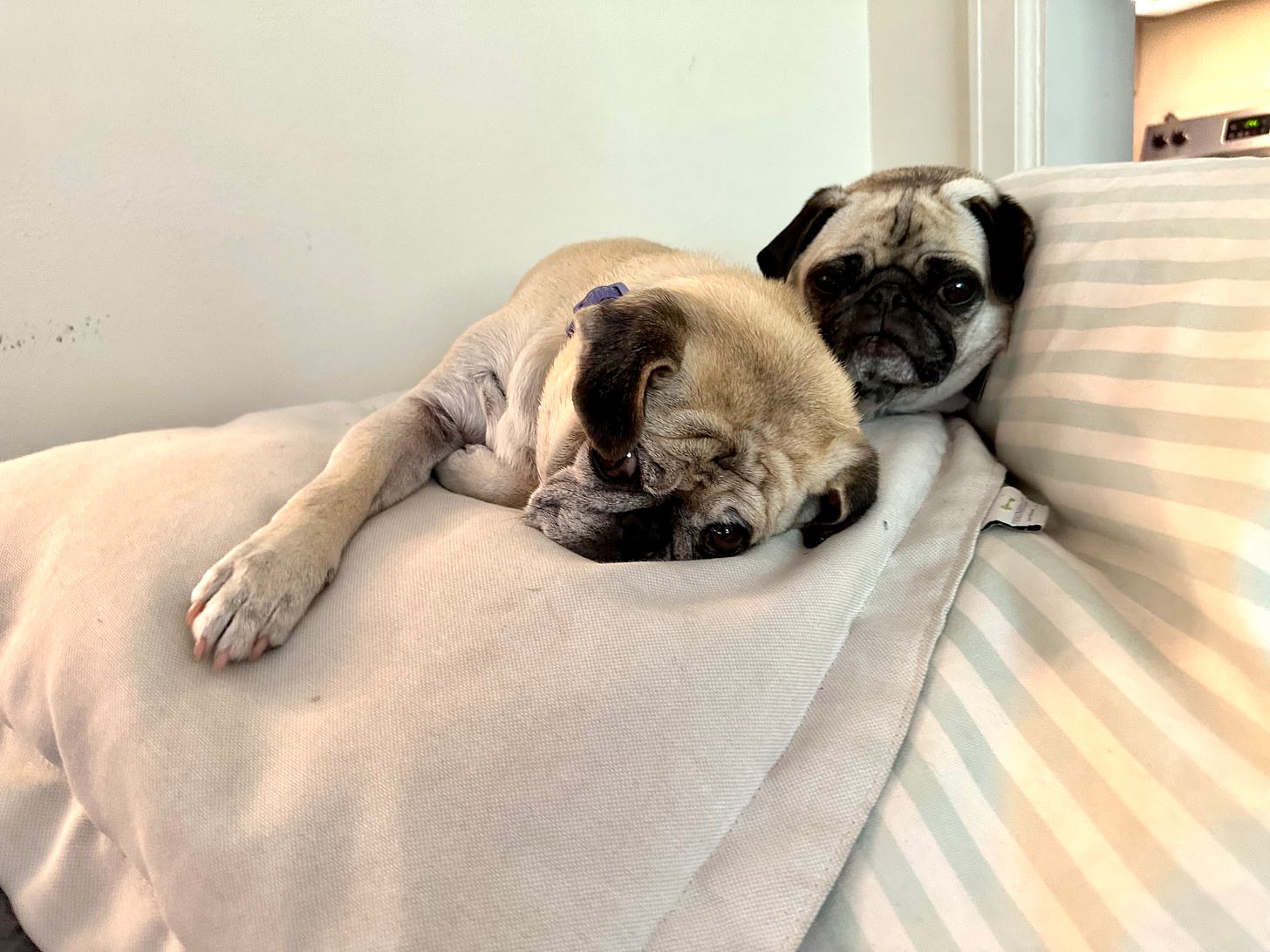Scared of, or for, sharks?
The psychology of watching Shark Week and what sharks mean for humans
Tl;dr:
This year marks the 35th anniversary of the Discovery Channel’s hit series Shark Week. Outside of television, many shark species are endangered and need extra protection with stronger conservation regulations in order to prevent further harm to the ecosystem.
Watching sharks tear people apart (even fake people) scares us, and this fear leads us to overestimate our chances of being attacked by a shark.
However, watching conservation PSAs can motivate some people to consider participating in conservation efforts.
The One Health paradigm in public health teaches us about the many interconnections between us, animals, and our shared environment.
Shark Week is a Millennial
In two days (July 23), the Discovery Channel will launch its 35th annual Shark Week. For the uninitiated, Shark Week is seven straight days of programming dedicated to the ocean’s most feared predator. This year, Aquaman a.k.a. Jason Momoa will be hosting as audiences through shows with names like “Serial Killer: Read Sea Feeding Frenzy,” “Great White Fight Club,” “Raiders of the Lost Shark,” and, of course, “Cocaine Sharks.”
Much of this Shark Week programming demonstrates how fierce sharks can be, complete with either real blood or reenactments of bloody encounters with humans. In reality, mosquitos and humans kill way more people (somewhere between 500,000 and 1.5 million deaths each year, combined) than sharks, who kill about six people per year. And, nearly a quarter of all sharks and rays are endangered and at risk of extinction.
In 2014, my good friend and colleague Suzannah Evans Comfort and I published a study on the psychological effects of watching Shark Week. Prior to academia, Suzannah had worked for Oceana, an ocean conservation group that produced public service announcements aimed at encouraging audiences to support shark conservation efforts. One Oceana video, staring actress January Jones, includes the tag line “Scared of sharks? We should be scared for sharks.”
As we’ve written about before, what Suzannah and I wanted to know was if a 30-second PSA about conservation could possibly counter the emotional weight of watching a great white tear through a surfboard while ominous music plays in the background.

So, we recruited 500 participants to watch a series of videos online and answer some questions afterward. We used three types of Shark Week videos in the first part of the montage: 1.) Highly violent Shark Week clips showing a shark tearing into a human body and causing serious injury; 2.) Moderately violent clips where a shark nibbles a person who sustained no injuries (thanks to protective gear); and, 3.) Nonviolent clips that showed sharks simply swimming around (sharks just being sharks).
Participants in our experiment watched only one type of Shark Week clip (nonviolent, moderately violent, or violent). Then, half the participants watched a shark conservation PSA video while the other half just watched a Wendy’s commercial (both were the same length). Finally, we asked participants to rate their emotional states, perceived risk of being attacked by a shark if they were to go swimming in the ocean, and their intentions to support shark conservation efforts.
It turns out that violent Shark Week content, whether paired with a PSA or not, caused a fear reaction in our participants. The more violent the Shark Week clip, the more fear our participants reported feeling afterward.
Additionally, watching a PSA did not mitigate that fear reaction. Instead, people who reported feeling afraid after watching Shark Week continued to overestimate their own risk of being attacked by a shark, even when presented with the facts that sharks are unlikely to attack humans.
Suzannah and I called this finding “mean ocean syndrome,” a variant of what famed communication researcher George Gerbner called the “mean world syndrome.” This is the finding that people who watch a lot of violent crime drama on television typically overestimate their likelihood of becoming a victim of a crime.
In the case of Shark Week, people are watching a lot of television programming that shows the ocean as a violent place. This, in turn, can make people overly scared of sharks, causing them to overestimate the dangers of swimming in the ocean.
All hope is not lost, though. For the half of the participants in our study who did view a shark conservation PSA, the message got through, even if they were still scared of sharks. For some participants, especially younger women, the PSA generated an increased interest in shark conservation and greater intentions to do things like donate to a conservation organization and support legislation protecting sharks. Perhaps the Discovery Channel has an opportunity, between doses of startle-inducing entertainment, to keep educating the public on the importance of sharks to our world.
One Health
Sharks may be scary to those of us who have watched Shark Week for many years now. To be honest, I much prefer However, they are vital to maintaining ocean health. As stated by Oceana,
“As apex predators, sharks play an important role in the ecosystem by maintaining the species below them in the food chain and serving as an indicator for ocean health. They help remove the weak and the sick as well as keeping the balance with competitors helping to ensure species diversity.”
Concrete examples of the problems when sharks are killed by humans (for fin soup or as accidental bycatch) include the following: “The loss of sharks has led to the decline in coral reefs, seagrass beds and the loss of commercial fisheries” and “By taking sharks out of the coral reef ecosystem, the larger predatory fish, such as groupers, increase in abundance and feed on the herbivores. With less herbivores, macroalgae expands and coral can no longer compete, shifting the ecosystem to one of algae dominance, affecting the survival of the reef system.” According to Oceana, the loss of sharks has also led to scallop fisheries closing and many restaurants having to remove clam chowder from their menu due to the decline in quahog.
While these examples are largely economic, an important concept in public health we can apply to this situation is the One Health paradigm. As defined by the CDC, “One Health is an approach that recognizes that the health of people is closely connected to the health of animals and our shared environment.”
I tell my students all the time that our modern world is complex. A One Health approach recognizes that complexity as well as all the intertwined systems that sharks and humans live within and contribute to. When any one component is out of whack, which is what happens when species become endangered, the ripple effects are enormous.
As we all learned during COVID-19 where it is strongly suspected that the disease originated in an animal in a market in China and then spread to humans, diseases can travel back and forth between us and animals (that is, zoonosis). A recent study by the USDA found that people spread COVID-19 to deer at least 100 times, and that COVID mutations spread the deer back to humans.
The CDC has many other examples of zoonosis with happier endings. Collaborative efforts between public health entities, medical teams, veterinarians, agricultural groups, environmental groups, have helped to slow or reverse the spread of disease and mitigate environmental degradation. The lesson is that with the proper resources (show me the money), political will, and right collaborations, a One Health approach is possible.
Although most humans are probably not catching deadly viruses from sharks, we need to respect the interconnections between our worlds, many of which we may not even know about yet. If we wait until too many shark species are gone, we may interrupt important, life-giving systems that we cannot fix. So, yeah, I guess I agree with January Jones: we should be scared for sharks. But, that is for some selfish reasons as the One Health approach has shown me how closely interconnected we all our.
That’s all for this week. Thanks for reading! 🦈
P.S. Pug pic below!






Hey! This was a great read! Big lover of sharks here 🙂🦈 Thank you for sharing!